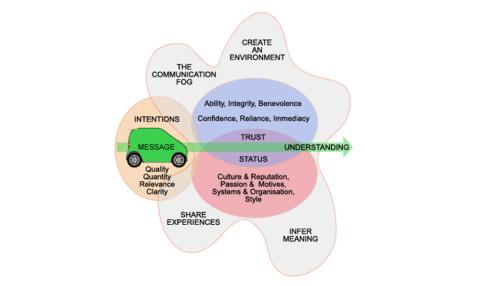Your information is relevant when the reader applies their own experiences from memory, perception and inference to obtain conclusions that matter to them.
This could be improving their knowledge, settling a doubt, confirming a suspicion, or correcting a mistaken impression.
By creating a familiar environment, you can include experiences which the reader will relate to. You can then use this environment to provide the information that steers the reader to your desired meaning.
The higher the level of sophistication of the reader, the higher the expectation of relevance will be expected. Depending on the level of sophistication of the reader you are interested in, you can distort the environment to suit the message.
A sophisticated understander will be able to understand and detect deception. With this reader, you can focus the message within the environment and use 'alternate universes' to infer your message swiftly and concisely.
A cautious optimist will be able to detect deliberate deception, such as irony. With this reader, you must be careful that the environment is plausible, otherwise they may wrongly interpret the meaning behind your message.
A naively optimistic interpreter will accept the first interpretation they find. With this reader, you must ensure that the environment does not violate true experiences, otherwise they may also wrongly interpret the meaning behind your message.













